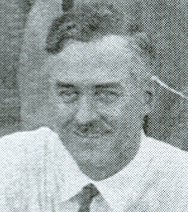[Recording at Substack]
Time to draft a presidential summer missive for the William James Society newsletter.
When I think of William James in summer, I think naturally of his annual escape at term's end to his Chocorua summer home in New Hampshire, with (he told his sister Alice) its "fourteen doors, all opening out"...
I think as well of his many Adirondack excursions, where at the end of one day's hike he came upon a "
ferocious metaphysical dispute" surrounding a squirrel...

and where he had what he called a Walpurgis Nacht pseudo-mystical experience...
And then I think of the terrific split-venue Chocorua/Cambridge centenary celebration of his life and work the James Society sponsored in August 2010, "in the footsteps of William James," coinciding with Harvard's Houghton Library exhibition Life is in the Transitions.
I think of the time he got horribly lost on a hike and probably propelled the heart-strain that expedited his exit from this earth at age 68 in August 1910.
And of course I think of the nobility of that exit. It was in his dying summer a hundred and fifteen year ago, when he penned a marvelous riposte to Henry Adams's morose pessimism over the universe's own mortality. The entire letter (dated June 17, 1910) is a tour de force of indomitably life-affirming human spirit, even in the shadow of looming personal extinction. It concludes with a crescendo of defiantly insistent hopefulness: "Though the ultimate state of the universe may be its vital and psychical extinction, there is nothing in physics to interfere with the hypothesis that the penultimate state might be... a maximum of happy and virtuous consciousness... In short, the last expiring pulsation of the universe's life might be, 'I am so happy and perfect that I can stand it no longer.'"
Isn't that an exit!
It was in his terminal summer that James declared, a bit disingenuously, that there were "no fortunes to be told and no advice to be given," in the conclusion of his final publication, "A Pluralistic Mystic"-a paean to his eccentric friend Benjamin Blood, but from our vantage more a brave "Farewell!" at the conclusion of a remarkably inspiring, perceptive, and humane life devoted to the unyielding defense of experience in all its irreducible variety.
The disingenuity in question has less to do with fortune-telling (though he was more than sufficiently receptive to the experience of unscrupulous seers and non-creditable prognosticators) than with advice. He was full of that. "Be not afraid of life" was one of his better lines, in this regard.
And it's probably the line we need most to heed ourselves, in this summer of our own (and America's) unsettled fortune. He'd tell us, I'm sure: you can stand it.
As he told us just before that final farewell: "There is no conclusion. What has concluded, that we might conclude in regard to it?"
We're still here, to enjoy experience and to shape it; to enjoy the world and to change it.
So say we at the William James Society, in the spirit of our namesake: enjoy your summer, and help ameliorate our world.









